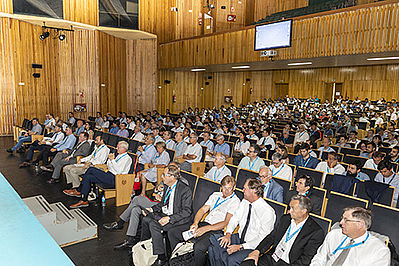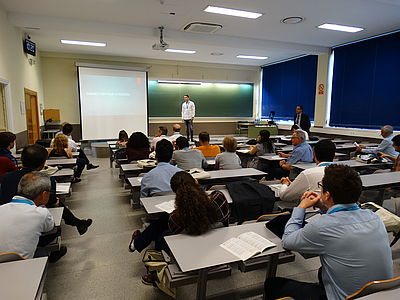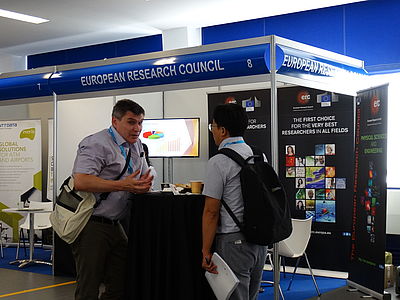For the first time EUCASS (European Conference for Aeronautics and Space Science) is held in Spain. The venue chosen for the eighth edition of this international conference on aeronautics and space has been the School of Aeronautical and Space Engineering (ETSIAE, Escuela Técnica Superior de Ingeniería Aeronáutica y del Espacio) of the Universidad Politécnica de Madrid (UPM).

For several days, from 1 to 4 July, this university in Madrid becomes the focus of global aerospace research, since around a thousand attendees will pass through ETSIAE's corridors, classrooms and meeting rooms, all of them interested in finding out scientific and engineering advances set out in 850 papers signed by experts from five continents, conducting research at the most prestigious universities within this field and cutting-edge companies in the sector.
The purpose of this conference is to analyse the state of the art in aerospace engineering and focus on promising innovations, whilst at the same time developing synergies between academia and industry, fostering the inception of future multidisciplinary projects and allowing PhD students to contact highly experienced researchers and engineers.
The highest representatives of European institutions, agencies, companies and aerospace entities (European Union, CNES, Ariane Group, DLR, ESA, Airbus...) have taken part at the conference opening. Additionally, the Rector of the Universidad Politécnica de Madrid, Guillermo Cisneros, stated that "it is an honour to host this conference that brings together experts worldwide within the field of aerospace engineering, working with the highest standards of innovation and research in this area.” He also stressed the importance of these events regarding the UPM students' training because "they clearly contribute to improving their training by applying to teaching the knowledge dissemination model coming from the advances presented in this type of forums”.

The topics addressed in EUCASS 2019 cover the whole aerospace field, from the integration of systems to structures and materials, physics and flight dynamics, propulsion physics to reusable launch space systems. The exchange of knowledge at a technical level is constant, converting this forum in a not-to-miss event to know where the sector is heading and where future technological developments are pointing at.
The 850 papers are presented in two formats: the majority, through oral presentations, spread over 16 parallel sessions in the morning and afternoon; the rest, in the form of posters, accessible to attendees in the conference transit areas. In addition, papers submitted by PhD students are eligible to be honoured with the best student work (Best Student Paper Award).

Rodrigo Martínez-Val, professor of the UPM and president of the local organising committee underlines that "Spain is the country presenting a greater number of works, up to 160, about 10 times more than the usual participation of national experts in this kind of events. China ranks second with 130 works and, France, Russia and Germany in a third position with around 100 works each”.
The industry has also its place. Companies and sponsors (CNES, Ariane Group, ITP Aero, DLR and Hispasat) have stands in an exhibition area where they can show their field of activity to attendees.

“Hosting EUCASS 2019 locates the ETSIAE in a leading position for aerospace innovation, since during these days; researchers who set the direction of the future of the sector will be together at the UPM. Having been chosen to held this prestigious conference has meant an unprecedented organisational effort in our School, but it will undoubtedly be worth it for the return obtained by our students and researchers in the form of collaborations in joint projects with colleagues from all over the world," claims Javier Crespo, director of the ETSIAE.

